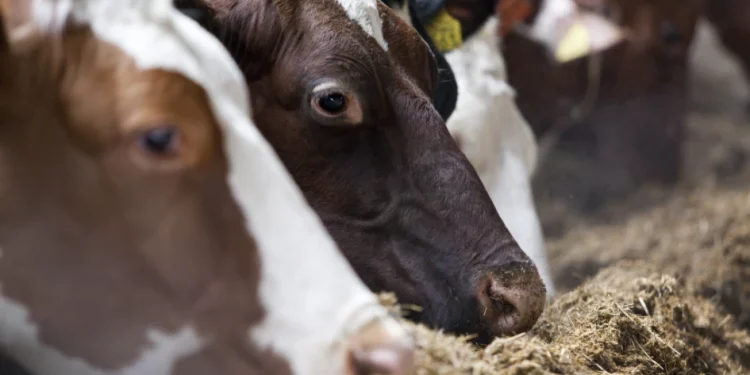The Kenya Veterinary Association (KVA) doubts the government’s ability to conduct an effective nationwide livestock vaccination exercise in January next year without enough public sensitization and rigorous communication.
- In a statement released on Tuesday evening, the association wants the government to pause the exercise believing that insistence to run it in the current climate of skepticism would only botch the aim.
- The veterinary association also acknowledged the government’s assurance that the exercise will be voluntary, allaying fears that the vaccination program is being pushed by dubious interests.
- They also asked the government to adequately fund veterinary services that were devolved to the counties, citing that the poorly resourced departments lead to the half-baked implementation of national livestock policies.
“For vaccination campaigns to be successful, a specified minimum coverage needs to be achieved. In the current heated climate, the objective cannot be met,” KVA said in a statement.
The association also urged politicians to remain mindful of what they say concerning the vaccination program. While there are legitimate concerns and queries surrounding the exercise, propaganda could inhibit a helpful process.
The awareness campaign that the association wants the government to focus on first will aim to establish crucial facts and scientific details, reach out to other stakeholders in the sector to garner input on the implementation strategies, and highlight pertinent risks.
“The government must also provide clear milestones and state how many cycles the vaccination exercise will take and the capacity of the Kenya Veterinary Vaccines Production Institute (KEVEVAPI) to sustain this exercise,” KVA said.
Why the Government Is Vaccinating Livestock
On Tuesday, President William Ruto shot back at opposers of the vaccination program and insisted that the government will not be held back. Speaking during the annual Kimalel Goat Auction in Baringo County, the president said that preventing livestock diseases was the surest way of improving carcass quality and accessing export markets.
“We are determined to carry out the vaccination programme for our livestock in an effort to increase prices for our livestock products and meet international market standards,” Ruto said during the event.
A section of Kenyans have suspected an ill motive in the vaccination program. The most prevalent narrative is that foreign agents are pushing for trials of a vaccine meant to suppress methane production in livestock.
The government has challenged the narrative claiming that the vaccines are meant to prevent the transmission of the Foot-And-Mouth Disease (FMD) that impacts livestock productivity and hinder international trade due to strict market restrictions abroad.
Although the Kenya Veterinary Association (KVA) perceives the exercise to control these diseases as crucial, it has urged the government to take a meaningful approach in maintaining trust with its citizenry and desist from a tussle of words.
“Lecturing of Kenyans by government officials can only lead to rebellion and hostility imperiling the uptake of such programs,” the association said.




